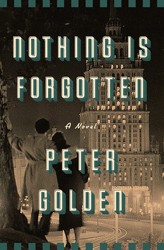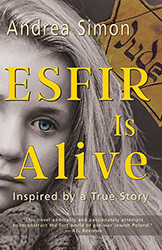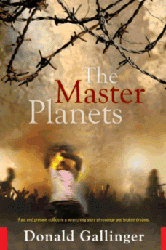In this panoramic novel spanning from 1938 to 1965, Peter Golden details the life of Julian Rose, a man who left Berlin at fifteen to explore opportunities in America despite his parents’ vociferous objections. In 1938, having made a fortune through bootlegging, Julian gets his parents out of Europe. His father is ensconced as the only white professor in a black college in Florida, and upon visiting his parents Julian meets the love of his life, the beautiful and talented Kendall Wakefield, whose mother is the Dean of the university. The two fall in love almost immediately, drawn together by their similar relationships with their parents: Professor Rose would like Julian to settle down and work in education as he does; Kendall’s mother, Dean Wakefield, would like Kendall to learn how to run the college instead of moving to New York to become an artist. The novel tells of Julian and Kendall’s on-and-off passionate relationship that spans countries and decades.
There are strong subplot dealing with the racism and prejudice in the times of the novel. Kendall’s fiancé is lynched for swimming at a Miami beach forbidden then to “Negros.” After bootlegging, Julian becomes an adept land investor and develops malls, apartments, and the first hotel owned by a Jew in Miami (which he ironically names “The Jerusalem”) — the sources of the endless riches Julian amasses and freely shares with Kendall.
Along the way, Julian meets Bessie Smith, Jean Paul Sartre, Picasso, Frank Sinatra, and Jackie Gleason, to name a few notable, and serves in the O.S.S. during World War II, after which he subsequently translates for the Nuremberg Trials, since he did live in Germany for years. Throughout Julian’s travels, if Kendall is not with him, she is on his mind. Her independent spirit and her fame as a photographer prevent her from settling down with Julian, a man so rich that she believes he tries to control her. Their love story seems destined to end unhappily.
This novel is a pleasing read; the combination of fiction with real human issues can be riveting. Golden’s writing is clumsy, however, overutilizing strained similes such as “the ribbon of beach glowed whitish-gold, and the ocean was pale green close to shore, turning a darker, more ominous blue as the Atlantic spread out to the horizon, all of it bathed in the violet-and-peach light of sunset, as though flowers and fruit had burst into flame.” Although the storytelling of Wherever There is Light has merit, the novel’s prose falls short.





